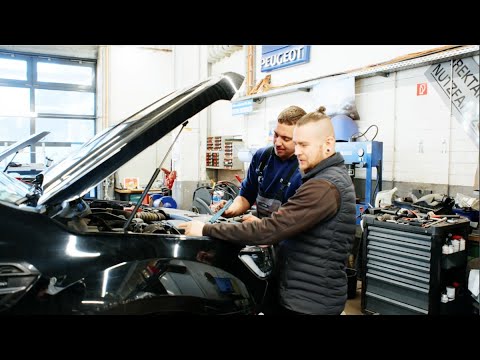

During the Soviet era in Latvia, people with disabilities were excluded from public life. Confined to long-term social care institutions, they had no control over their lives and decisions, supposedly in order to protect their fellow citizens.
Children without parental care were similarly isolated in large institutions. Due to inadequate care and isolation, society believed that these young people had mental disorders.
Today, a series of deinstitutionalisation projects are helping these people reintegrate society, through group apartments, day care centres, and community-based social care services.
People with disabilities and mental disorders now have access to specialist medical advice and support groups. Training courses and specialised workshops provide them with the skills they need to find a job.
‘I am grateful for what has happened to me recently’, says Kaspars, who lives in a group house opened in 2022. ‘My life has changed - I finally have a job, my own private space and the opportunity to go to interesting events. In recent months, I have learned to take care of myself,’ he shares.
Family members of people with disabilities can use a ‘respite care service’ to temporarily entrust their loved ones to specialists. This allows them to regain strength, rest, or attend to urgent tasks.
Stepping into another’s shoes
These projects also aim to help citizens see beyond prejudice and diagnosis, recognising the individual behind - a person with their own desires, needs and rights.
The ‘Step into another’s shoes’ campaign was designed to increase public understanding, empathy and support for people with disabilities. It was built on the idea that the best way to understand someone is to step into their shoes.
The campaign encouraged people to engage with real-life documentary stories. On a nationwide day of mismatched shoes, everyone was invited to wear mismatched footwear to show their understanding and support for people with disabilities. A creative competition among young people motivated them to reflect on the essence of invalidity and the human being behind it.
‘Putting on different shoes, we can somehow feel what it's like to be a little different’, said Elīna Celmiņa, Deputy State Secretary of the Ministry of Welfare.
Project details
- Project name
- Deinstitutionalization and social services for persons with disabilities and children
- Countries
- Latvia
- Organisation
- Ministry of welfare Republic of Latvia
- Participants
- 7368
- Project start
- 2015
- Project end
- 2023
- Internet and social
- Total budget
- EUR 48 922 363
- EU Budget contribution
- EUR 41 907 354


